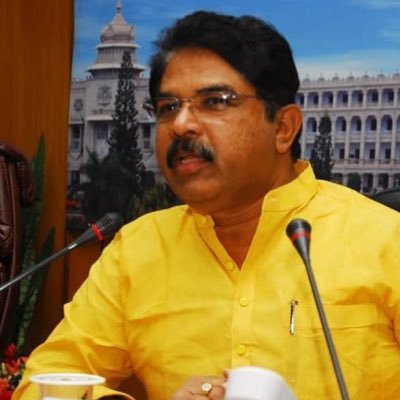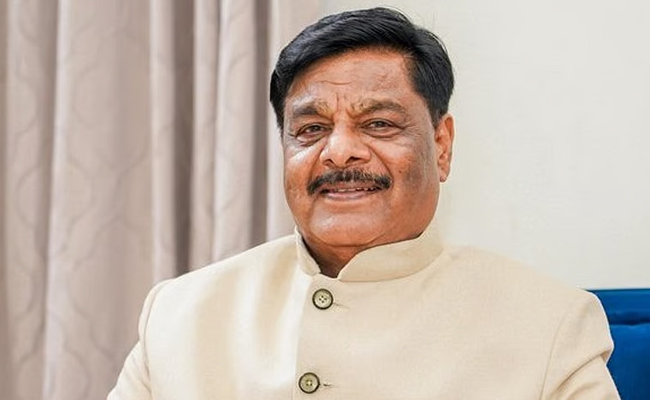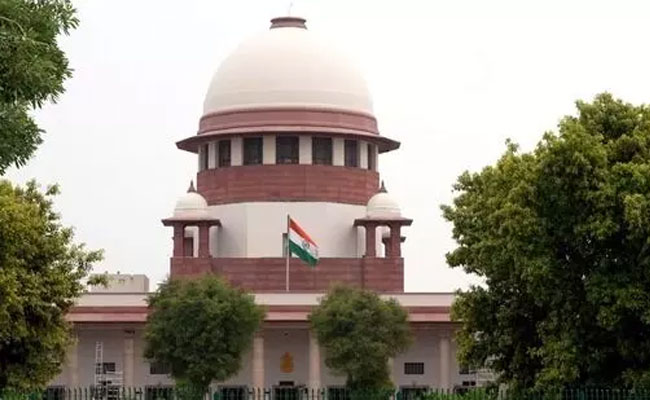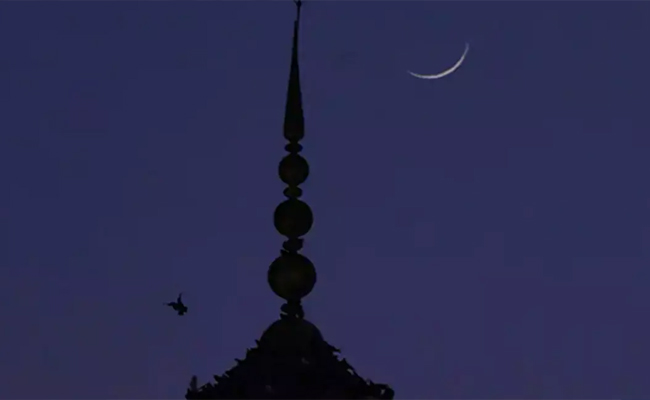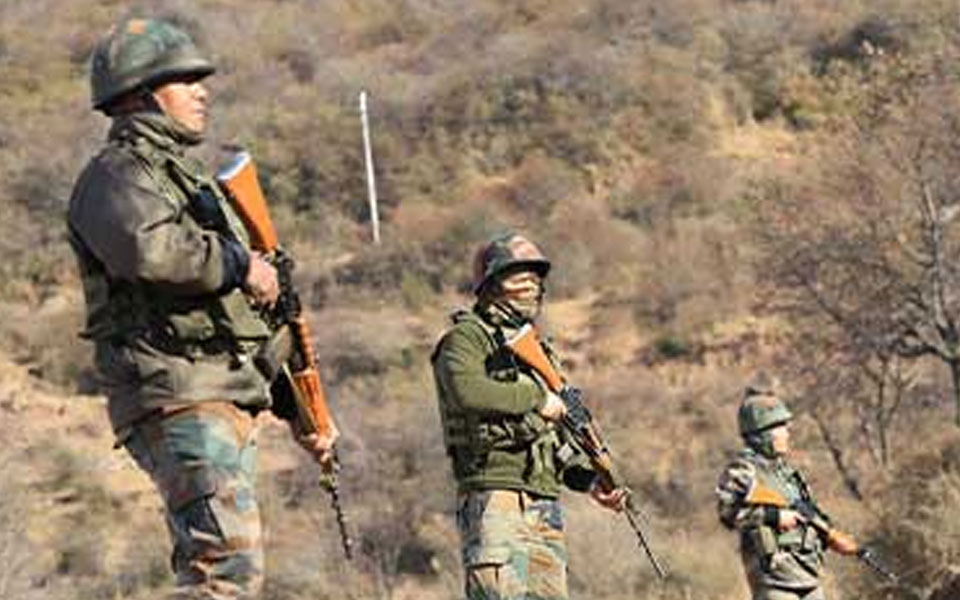Bengaluru, Aug 30: Chamarajpet Idgah ground here is actually a "public property" and the legal fight over its ownership will continue in the courts, Karnataka Revenue Minister R Ashoka said on Tuesday, following the Supreme Court refusing to grant permission for Ganesh Chaturthi celebrations there, and ordering status quo.
He said the government will abide by the court order.
"People of Chamarajpet and Bengaluru were eager to celebrate Ganesha festival at the ground, but the Supreme Court has ordered status quo. We will fight legally in the courts, in the days to come," Ashoka said.
The ground is currently under the control of the state Revenue Department.
The Supreme Court on Tuesday refused to grant permission for Ganesh Chaturthi celebrations at Idgah ground and ordered status quo on land by both parties.
A three-judge bench headed by Justice Indira Banerjee asked the parties to approach the Karnataka High Court for the resolution of the dispute.
The top court was hearing an appeal filed by the Karnataka Waqf Board challenging the order of the High Court.
A division bench of the Karnataka High Court on August 26 permitted the state government to consider and pass appropriate orders on the applications received by the Deputy Commissioner of Bengaluru (Urban) seeking the use of Idgah ground at Chamarajpet.
Chamarajpet Nagarikara Okkoota Vedike, a citizens' forum, that wanted to organise the festival at the ground said they will abide by the order, but will fight the ownership issue legally.
"After the Supreme Court order there is no question of installing Ganesh idol there (Idgah ground), the government will also not allow it. Everyone has to obey the Supreme Court order," Ramegowda of Chamarajpet Nagarikara Okkoota Vedike said.
However, Karnataka State Board of Auqaf Chairman Moulana Shafi Saadi in New Delhi said, the Supreme Court order is a welcome one, as it doesn't allow attempts to disturb Hindu-Muslim unity, because of Chamrajpet Idgah ground issue.
"The Supreme Court has upheld the Places of Worship Act of 1991 and has ordered status quo...I want to tell Hindu brothers that Karnataka's Muslims are not against Ganesha festival celebrations, Islam does not preach opposing other's religious practices," he said, maintaining that Idgah is a Waqf property where Muslims have performed Namaz for 200 years.
Police have made tight security arrangements in and around Idgah ground at Chamarajpet, ahead of the Supreme Court hearing the matter today and had even held a "route march".
A Division Bench of the High Court of Karnataka on August 26 had modified an interim order of a single judge bench on the Chamrajpet Idgah playground dispute, saying religious and cultural activities can be allowed by the government there, but for a limited period from August 31.
Earlier, the court on August 25 had ordered that the two-acre land should be used only as a playground and Muslims should be allowed to pray there on only two festivals -- Bakrid and Ramzan -- till the case was disposed of.
The Joint Commissioner (west) of the Bruhat Bengaluru Mahanagara Palike (BBMP) had recently ruled that the property belonged to the Revenue Department following the civic body's Chief Commissioner's directions to verify the ownership of the land.
However, the Karnataka State Board of AUQAF and District Waqf Officer, Bengaluru challenged the order of the Joint Commissioner before the Single Judge of the HC.
The original property dispute dates back to 1955 and the Supreme Court had ruled in favour of the Waqf in 1965.
The decades-old dispute over Idgah Maidan had once again come to the fore earlier this year, when some Hindu outfits sought BBMP's permission to hold events there.
This resulted in two contrary sets of documents emerging -- the Karnataka State Board of Auqaf presented a 1965 gazette notifying the land as Wakf property and the 1974 City Survey records and all other civic records thereafter showed the land to be a playground.
In the meantime, following the BBMP order, several Hindu organisations announced they would celebrate Independence Day on the ground. Also, local Congress MLA B Z Zameer Ahmed Khan had announced they would go ahead and hoist the tricolour there.
However, the State Revenue Department organised the Independence Day event and an assistant commissioner-rank official hoisted the flag on August 15 for the first time at the Idgah ground.
Let the Truth be known. If you read VB and like VB, please be a VB Supporter and Help us deliver the Truth to one and all.
Bengaluru (PTI): The simmering leadership row in Karnataka took a sharp turn on Tuesday after Minister H C Mahadevappa made remarks invoking a High Court observation on stray dogs, drawing reactions from senior Congress leaders and the Opposition.
Speaking to reporters in Mysuru on Monday, Mahadevappa, considered close to Chief Minister Siddaramaiah, in cryptic remarks said, "Where is the discussion on leadership issue? The High Court says time and again to catch stray dogs and confine them. Here the political leadership is strong."
When asked to clarify whom he was referring to with the dog metaphor, the social welfare minister said he was only citing the High Court order.
"I was only referring to what the High Court had said. I do not know how you people perceive it," he added.
Mahadevappa's remarks come amid the ongoing speculation over the leadership tussle between Siddaramaiah and his deputy D K Shivakumar. The minister also dismissed talk of any change at the top.
On the issue of leadership change, Mahadevappa said, "Who can give direction to the party high command? Can you and me direct it? It's they who can give us direction and not the other way round. What if tail wags the dog?"
Meanwhile, Shivakumar said he would not comment on Mahadevappa's remarks.
"I am not ready to react to Mahadevappa's statement. Not just him, but anybody. I had said this before as well. Siddaramaiah and our Congress national president Mallikarjun Kharge have also spoken on our leadership issue," Shivakumar, who is also state Congress president, told reporters on Tuesday.
He added, "It is a decision taken by me, Siddaramaiah and the party high command. Time will answer what the decision was. There is nothing hidden in this dealing. Siddaramaiah himself will answer the people when the time comes."
Shivakumar's brother D K Suresh said he was unaware of the context of Mahadevappa's remark.
"I don't have the information whom Mahadevappa referred to as dogs," the former Lok Sabha member told reporters.
However, he added, "devout Congress leaders are not stray canines but honest dogs. They never ditch those who favoured them. They clear the debts of their master."
Congress MLC B K Hariprasad likened Shivakumar to a railway engine.
"Shivakumar is like the engine taking along the entire train but when it reaches a destination, he makes lots of noise and rouses vendors over there," he said while addressing mediapersons.
Meanwhile, taking a swipe at Mahadevappa, Leader of the Opposition in the Legislative Council Chalavadi Narayanaswamy said, "the statement construes that all the leaders in Congress are dogs."
"Congress leaders like dogs very much. Mahadevappa has subtly explained whether the dog is wagging its tail or tail is wagging the dog."

